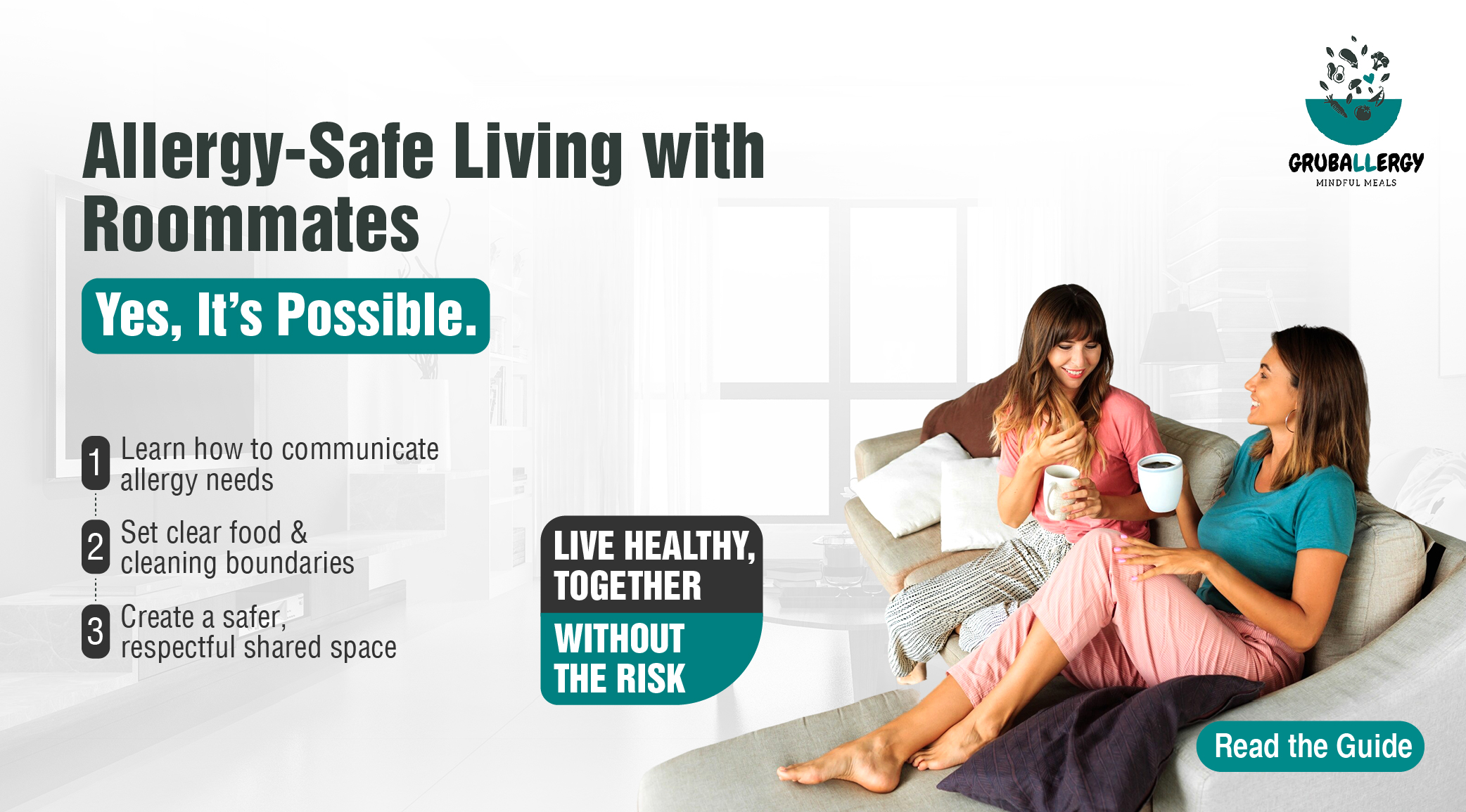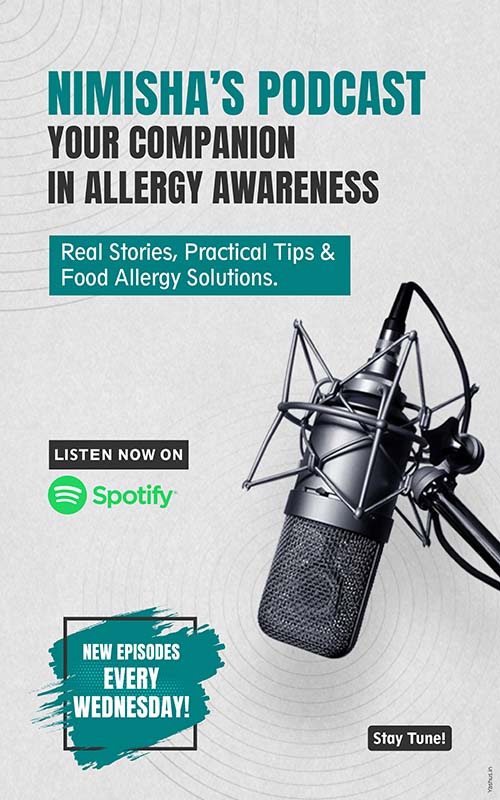Experience at the FARE Summit: Insights from the Food Allergy Research & Education Conference
BlogsOctober 22, 2024

Attending the Food Allergy Research & Education (FARE) Summit for the first time was an eye-opening experience, especially for someone like me who has witnessed the challenges of food allergies through a loved one. This event, hosted by the leading food allergy organisation, brought together experts and advocates from all corners to share insights, discuss cutting-edge food allergy treatments, and empower the community. Here's a look into my experience at the FARE Food Allergy Summit.
A Platform for Food Allergy Awareness, Research, and Community
The FARE Summit 2024 isn’t just another conference—it’s a crucial gathering that addresses both food allergies and intolerances. The event's primary goal is to enhance the understanding of common food allergies, such as nut allergies, milk allergies, and shellfish allergies, while also exploring solutions for less commonly discussed conditions like wheat allergies and milk protein intolerance.
The summit emphasized the rising prevalence of food allergies, with millions affected globally, from dairy allergies and cows' milk protein allergies to conditions like gluten intolerance. The atmosphere was charged with a shared mission: to foster greater awareness, research, and education about food allergy treatment and management.

Day 1: Advocacy and Cutting-Edge Research
Session 1: Grassroots Advocacy for Food Allergy Awareness
The summit kicked off with a group discussion focused on grassroots advocacy. This session reinforced the importance of raising awareness about top food allergens like cow’s milk allergy, nut allergies, and shellfish allergy. As a participant, I learned how individuals and communities can work together to improve policies around food allergies and food intolerances, ensuring safer environments for those affected.
Session 2: Xolair Treatment for Food Allergies
The keynote address by Dr. Robert Wood was a major highlight of the summit. His presentation on Xolair, a newly approved treatment for food allergies, particularly for milk allergy and most common food allergies, sparked hope for those living with severe allergic reactions. Understanding how emerging treatments can help manage conditions like milk intolerance, milk protein allergy, and even dairy intolerance was fascinating and offered a glimpse into the future of food allergy treatment.
Session 3: Exploring Food Allergy Research & Education
The final session of Day 1 dove into the science behind food allergies. We explored the Food Allergy Panel, which includes testing for top 8 allergens, such as peanuts, tree nuts, wheat, dairy, and shellfish. Researchers discussed gluten intolerance and us food intolerance, offering valuable information on the overlap between food allergy and food intolerance. This session underscored the importance of food allergy research & education to advance treatment and support for those living with food intolerance and allergies.
Day 2: Mental Health, Caregiving, and Community Empowerment
Session 4: Managing Anxiety in Caregivers and Parents of Children with Food Allergies
The psychological impact of food allergies was at the forefront of Day 2. Many parents of children with cows' milk protein allergy, milk protein intolerance, or wheat allergy face heightened anxiety due to the constant vigilance required to keep their children safe. This session offered valuable mental health strategies for caregivers, a much-needed reminder that living with food allergies affects emotional well-being, not just physical health.
Session 5: Caregiving Throughout the Ages
As individuals with common food allergies grow older, their needs change, and so do the caregiving strategies. From managing dairy intolerance in children to helping adults with severe milk allergies navigate social and dietary restrictions, this session covered the caregiving journey across different life stages. The advice shared was incredibly practical, from understanding how to prepare allergy-safe meals to advocating for those with food allergies in schools and workplaces.
Closing Session: Empowerment Through Advocacy
The closing session by Jason Linde left a lasting impression on all attendees. He emphasized that advocacy is essential in the fight for better food labeling, more research funding, and greater public awareness. Learning how we, as a community, can push for changes that improve the quality of life for people with gluten intolerance, milk protein allergy, and other food allergies and intolerances was incredibly empowering.
Personal Reflections: A Renewed Commitment to Advocacy
Reflecting on my experience at the FARE Food Allergy Summit, I felt a renewed sense of commitment to both advocacy and education. Learning about the most common food allergies, from nut allergies to dairy allergies, alongside the emotional toll these conditions take, was eye-opening. The stories shared by others managing food allergies reminded me that we are all in this together, working toward a safer and more inclusive world for those affected.
The summit also underscored the importance of continued food allergy research & education, particularly for finding new food allergy treatments and improving the management of milk intolerance, dairy intolerance, and cows' milk allergy. The insights gained from this experience have inspired me to stay engaged with organizations like FARE and participate in future summits.
Key Takeaways
-
Advocacy is vital: Whether at the local or national level, advocacy can drive policy changes and create safer environments for individuals with food allergies and gluten intolerance.
-
Breakthrough treatments are offering hope: Cutting-edge treatments, such as Xolair, are making a significant difference in managing severe food allergies like milk allergy and wheat allergy.
-
Mental health matters: The emotional impact of living with food allergies can be profound, and supporting the mental health of those affected is crucial.
-
Community support is powerful: Sharing stories, strategies, and knowledge with others managing food allergies and intolerances fosters a sense of belonging and empowerment.
Conclusion: Looking Forward to Future FARE Summits
Attending the FARE Food Allergy Summit was a truly remarkable experience that deepened my understanding of food allergies and the community's dedication to improving the lives of those affected. From learning about the latest treatments and advocacy strategies to connecting with others who face similar challenges, this summit provided hope, inspiration, and valuable tools for navigating the complexities of food allergies.
I look forward to attending future summits hosted by FARE and the Food Allergy Institute, continuing to learn and advocate for a safer, more inclusive world for everyone affected by top food allergens like shellfish, dairy, and wheat.
Explore more resources, tips, and allergy-friendly recipes at GrubAllergy, and stay connected for future events and updates on food allergy research and advocacy. Together, we can make a difference.
FAQ
-
The FARE Summit is an annual event focusing on food allergy research, education, and advocacy, open to individuals, families, and professionals interested in food allergy advancements.

-
Sessions covered breakthroughs in allergy research, including immunotherapy, mental health impacts, and practical management strategies for common food allergies.

-
Advocacy plays a crucial role, with discussions on policy changes, funding for research, and community support aimed at improving life for those with food allergies.

-
Emerging therapies like Xolair for food allergies and updates on oral immunotherapy were discussed, giving hope for better management options.

-
FARE leads the way in funding research, hosting clinical trials, and educating the public about food allergies, empowering people through resources and advocacy FoodAllergy.org.



.png)
.png)





.jpg)


